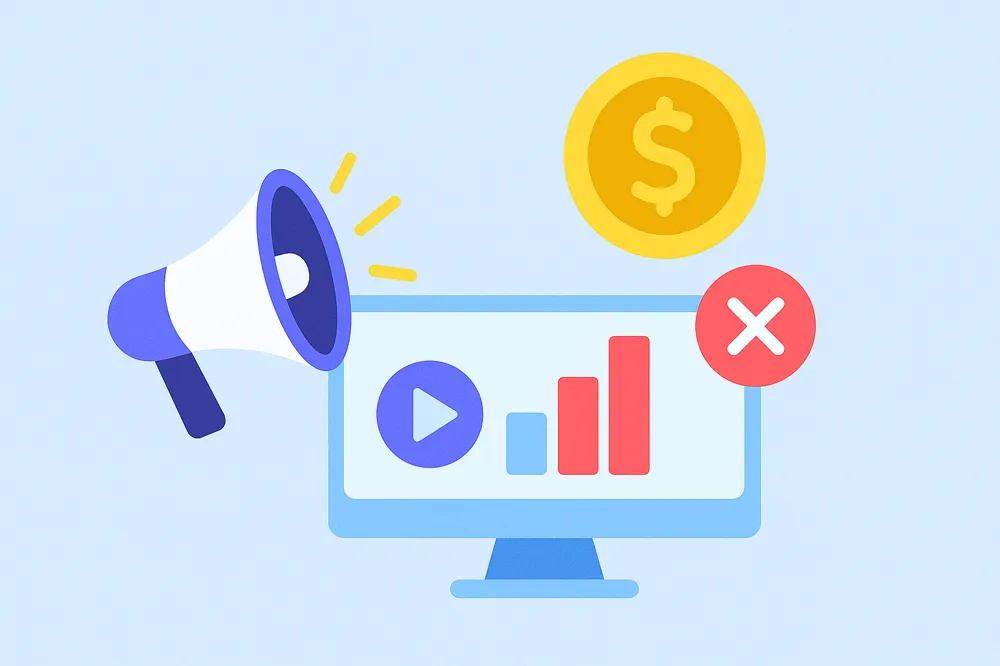Advertising is part of our everyday life. It is on videos, apps, articles, TV, and even while walking down a busy street. At times, it makes us aware of something helpful. At other times, it makes us buy something we may not actually need.
In an attempt to understand how advertising affects our actions and choices, it is prudent to look at both its advantages and disadvantages. This guide discusses the main advantages and disadvantages of advertising in a clear, thoughtful, and pragmatic way for everyone.
Why Advertising Can Be Valuable
Advertising does more than make sales. When done right, it educates, activates, and even enables people.
1. Introduces New Products and Services
Advertising informs people about what is available in the market. Either a new smartphone application, a health supplement, or a local coffee shop, ads introduce commodities and services into the fray that would otherwise be ignored.
For businesses, especially startup businesses, advertising is the gateway connecting them with their clientele.
2. Offers Useful Information
The best commercials are informative. They detail how something operates, why it is potentially better, and how much it costs. They give comparisons, illustrate benefits, and answer questions prior to a customer asking them.
That helps individuals make better choices when there are many options.
3. Supports Free Online Content
The majority of apps, websites, and streaming services live off ads. Without advertisements, consumers would need to pay subscription costs to watch their preferred content.
Advertising enables creators and businesses to provide news, entertainment, and devices without charging the consumer directly.
4. Promotes Business Competition
As companies promote, they compete for attention. This makes products, customer service, and prices better. Companies are forced to innovate and deliver more value to survive in a saturated market.
Advertising can make the overall quality of what is offered better this way.
5. Increases Employment and the Economy
Advertising creates careers in media, design, and recruitment strategy a field where effective hiring practices rely heavily on targeted messaging.
As businesses grow through advertising, they also create more jobs in other sectors, including sales, logistics, and customer service.
Where Advertising Can Become a Problem
Aside from all of its beneficial results, advertising also has a dark side. It has the potential to influence people in ways that are not always good or always just.
1. May Mislead or Confuse Buyers
Some advertisements mislead or hide crucial facts from consumers. A product, for instance, seems perfect in an ad but performs otherwise in actuality. An advertisement for a loan will show low interest rates without clearly revealing hidden charges.
Such actions can lead to less-than-ideal decisions, buyer’s regret, and loss of trust.
2. Encourages Unnecessary Spending
Most commercials are constructed on emotional stories or limited-time promotions like “limited time only” or “while supplies last.” These appeals try to develop pressure and urgency.
This can generate impulse purchases, overspending, and financial tension, especially when the item is not essential.
3. Reinforces Stereotypes and Unrealistic Standards
Some ads perpetuate very narrow definitions of beauty, lifestyle, or success. This can construct negative social messages and influence mental health, especially among youth.
While the industry is improving, too many advertisements are still using unrealistic images that don’t reflect everyday life.
4. Encourages Big Brands Over Little Ones
Big brands have bigger advertising budgets. They can campaign on everything and reach many people. Small businesses offer better service but do not have the budget to advertise as much. It is harder for independent and local brands to compete.
5. Raises Concerns Around Privacy and Data
Digital advertising typically draws on personal information. Your online history, app behavior, and even whereabouts can be followed to display personalized ads.
Most people don’t realize how much data is being gathered or exactly how it is being used. It opens significant questions about data privacy and consent.
How Different Types of Advertising Work
Each ad format influences individuals differently. Below is a brief overview of some of the most typical types.
- TV Commercials: Visual and emotional, but often expensive and easy to avoid with modern streaming habits
- Newspaper and Magazine Ads: Credible and informative, but less effective as fewer humans read materials like newspapers and magazines
- Social Media and Online Ads: Social media ads are especially useful for talent acquisition, as they can streamline the recruitment process steps when sourcing candidates.
- Outdoor Ads: Constantly visible, for example, billboards or posters, but are uninformative and interactive
Remember that the site allows you to examine the message more clearly.
How to Be a Smarter Consumer
Advertising is all around you, but you can keep control of how you allow it to affect you. These are some habits that help:
- Ask whether the commercial is showing facts or playing on feelings
- Consider whether the product serves a methodical requirement or is thrilling at the time
- Be cautious of offers that are too good to be true or too urgent
- Take time to compare before you act
- Learn about how your information is collected and used, especially online
With more knowledge, you make better choices and aren’t manipulated by marketing ploys.
Final Thoughts
Advertising is the focus of how we learn about products, research possibilities, and choose what to buy. Advertising can inform and enrich life but also can control and mislead.
You are a wiser, more thoughtful consumer by being informed of the advantages and disadvantages of advertising. Instead of responding on impulse, you pause to question, consider, and decide what’s truly worth your time.
The more aware you are, the more in control you become of your choices.


